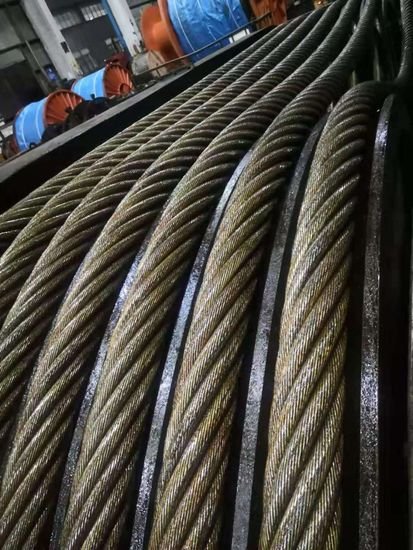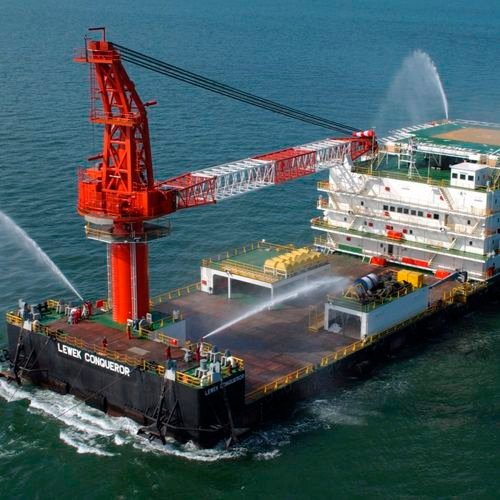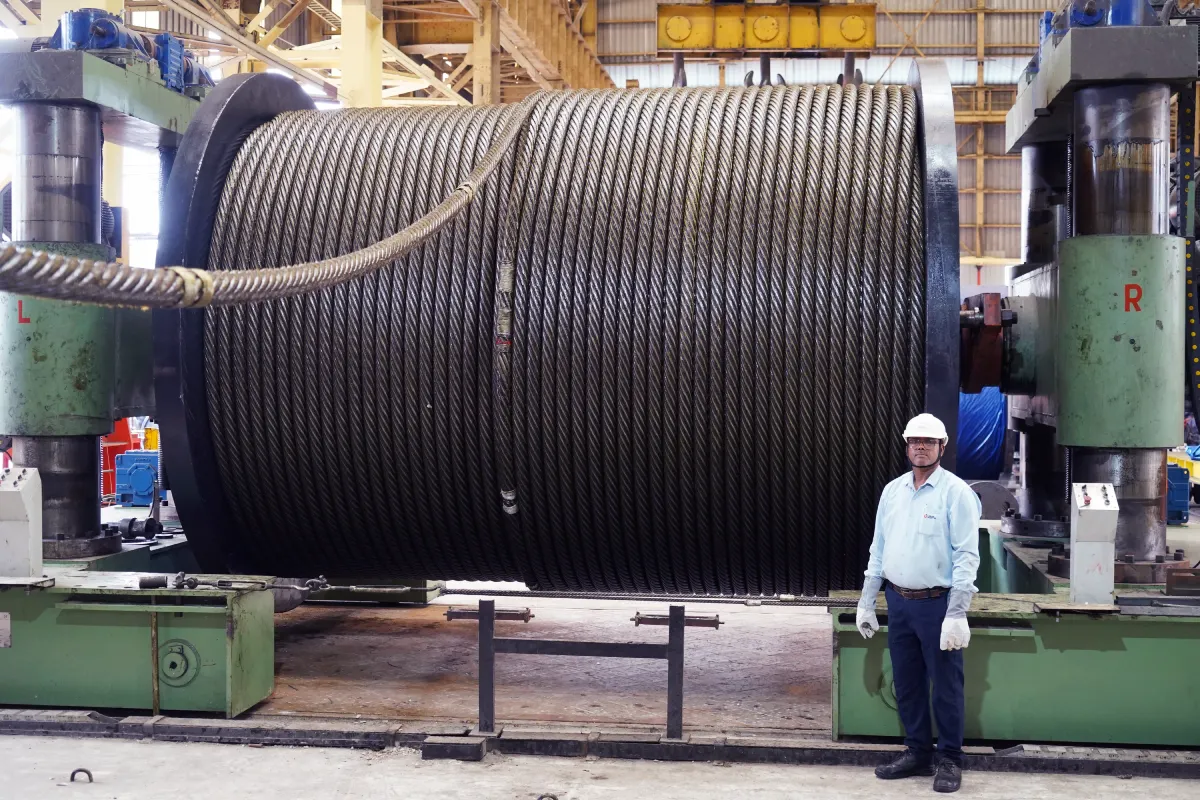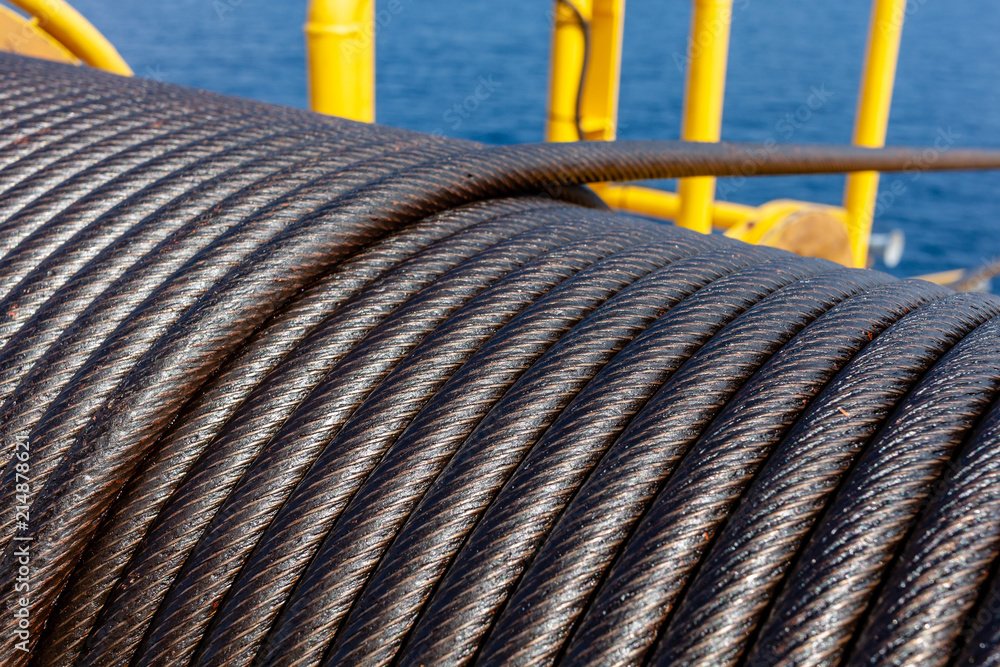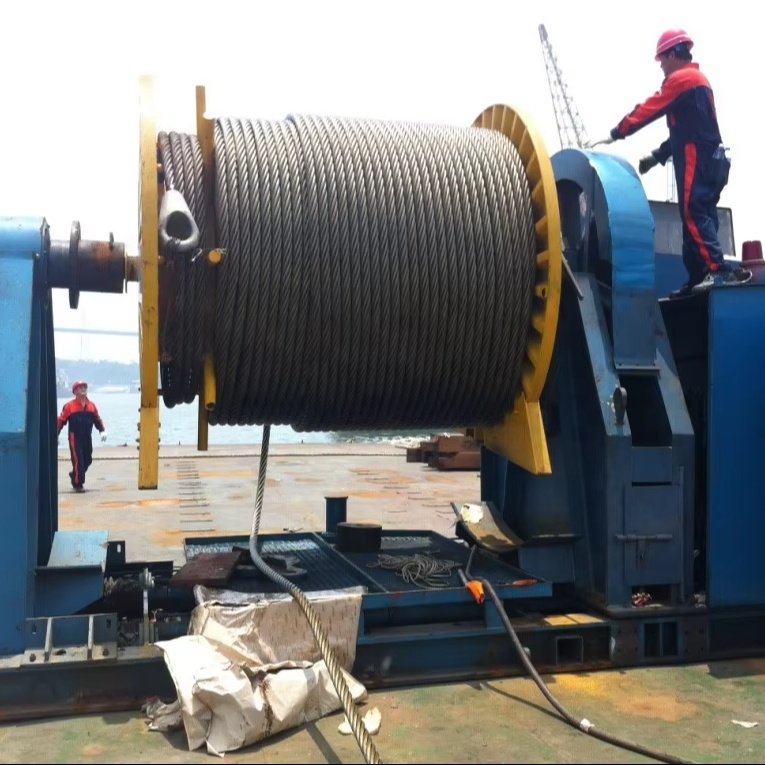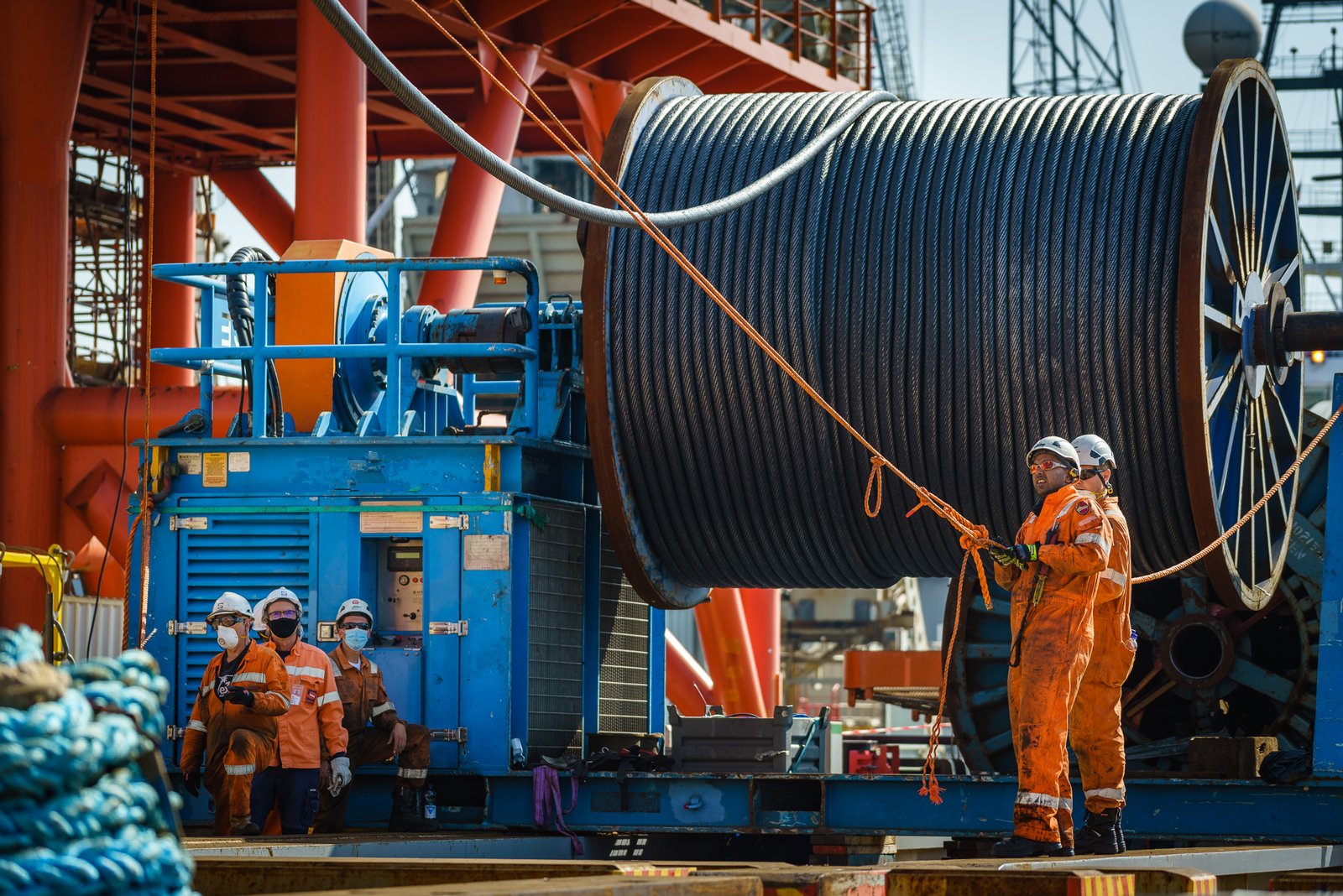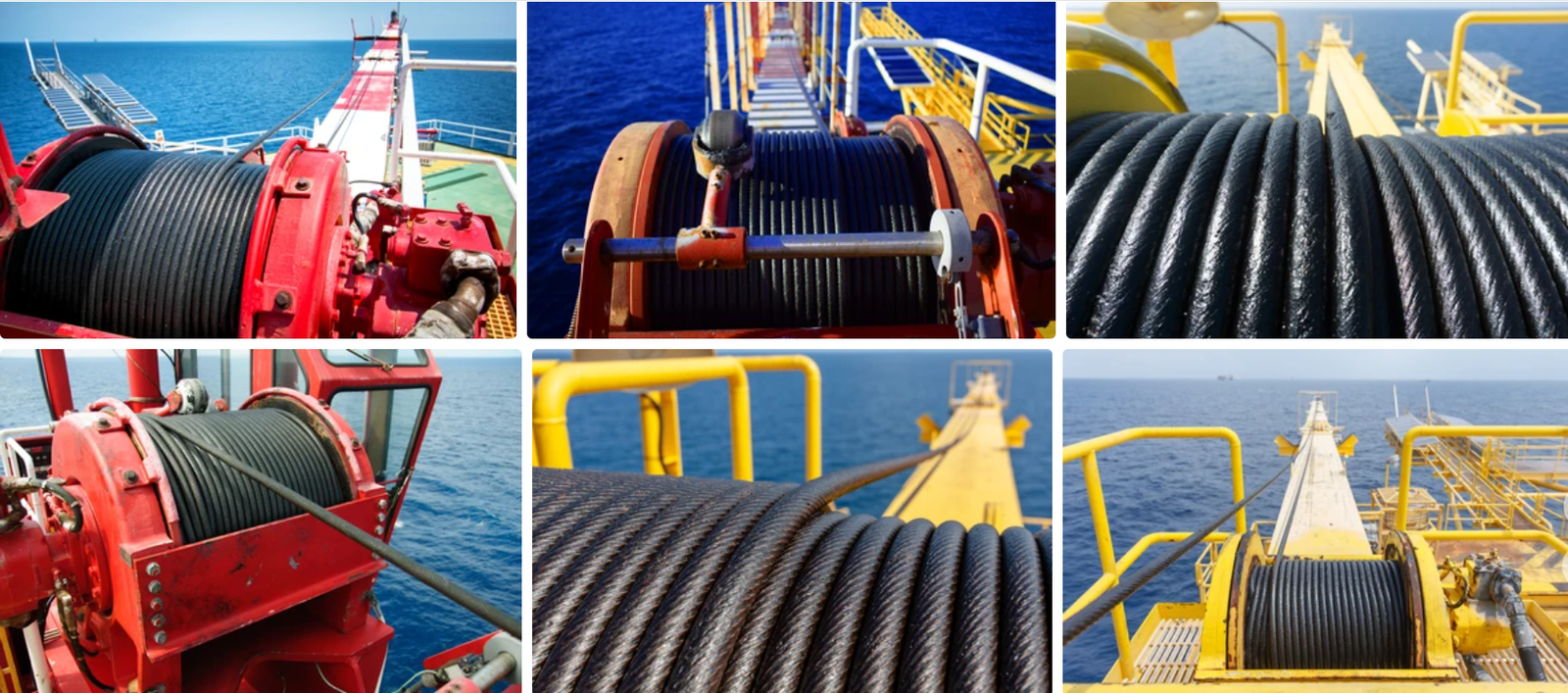Are you looking for a reliable and strong material for your lifting or pulling needs? Steel wire ropes offer a powerful solution. They are engineered for demanding applications and provide exceptional performance across industries.
Steel wire ropes are highly valued for their superior strength, durability, and flexibility, making them ideal for heavy-duty tasks. They offer a robust and cost-effective option for many industrial challenges.
Before we explore the specific benefits, let me share a quick thought. I remember a time when a project in Australia needed a very specific type of rope for a critical lift. Getting it right was essential, and the choice of material played a huge role. Let’s dive into why steel wire ropes are often the top choice.
Why Are Steel Wire Ropes Considered a Superior Choice for Industrial Applications?
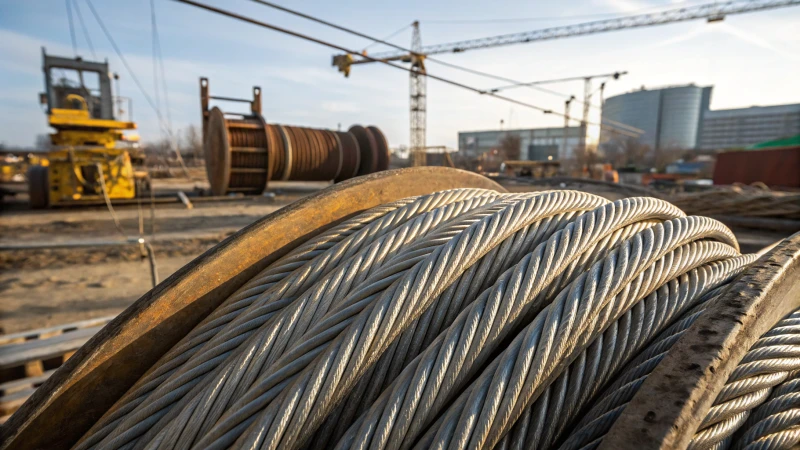
When it comes to industrial needs, quality and performance are paramount. Steel wire ropes consistently deliver on these fronts.
Steel wire ropes stand out due to their high tensile strength, excellent breaking load capacity, and impressive durability. These features ensure they can handle extreme conditions and heavy loads safely and efficiently.
Diving Deeper into Superiority
The inherent properties of steel make wire ropes exceptionally strong. The manufacturing process, which involves drawing steel into fine wires and then stranding them together, further enhances this strength. Different constructions and core types allow for specific performance characteristics tailored to various applications.
Here’s a closer look at what makes them so advantageous:
| Feature | Description | Benefits |
|---|---|---|
| High Tensile Strength | The ability to withstand pulling forces before breaking. | Allows for lifting and pulling heavier loads with smaller diameter ropes, saving space and weight. |
| High Breaking Load | The maximum load a rope can support before failure. | Provides a significant safety margin for lifting operations, crucial for preventing accidents. |
| Durability | Resistance to wear, abrasion, and fatigue from repeated use. | Leads to a longer service life, reducing replacement costs and downtime for operations. |
| Flexibility | The ability to bend without permanent deformation or significant loss of strength. | Allows ropes to be used with pulleys and drums, essential for crane and elevator operations. |
| Corrosion Resistance | Certain types, like galvanized or stainless steel, can resist rust and other forms of corrosion. | Extends lifespan in harsh environments, such as marine or chemical applications, ensuring reliability. |
| Standard Compliance | Adherence to international standards like EN12385-4 ensures quality and safety. | Guarantees that the rope meets rigorous testing requirements for reliable performance. |
| Customization | Options like plastic impregnation, custom logos, and specific certifications (BV, CE, DNV, ABS). | Allows businesses to meet specific project requirements and regulatory demands with confidence. |
This combination of inherent material strength and careful engineering makes steel wire ropes incredibly versatile. For instance, a crane wire rope needs a different construction than an elevator wire rope. The former might prioritize flexibility and abrasion resistance, while the latter requires extreme smoothness and durability for continuous operation.
How Do Steel Wire Ropes Handle Diverse Environmental Conditions?
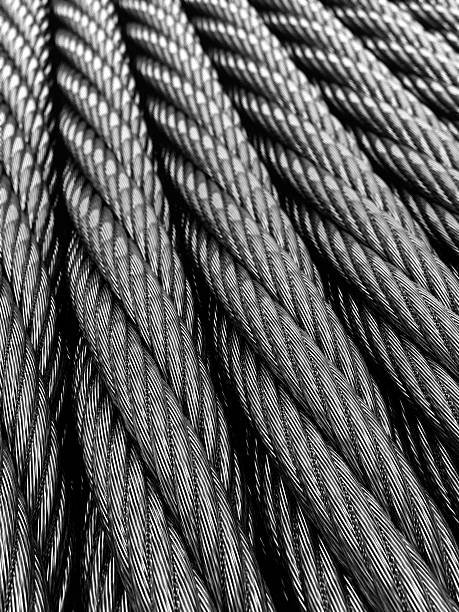
Many industrial jobs expose equipment to challenging environments. Steel wire ropes are built to endure these conditions.
Steel wire ropes are designed to be strong and long-lasting, even when facing tough conditions like moisture, chemicals, or extreme temperatures.
Adapting to the Elements
The versatility of steel wire ropes is further enhanced by various available treatments and materials. For example, galvanized wire rope offers good protection against rust, making it suitable for outdoor or damp environments. When a higher level of protection is needed, especially in corrosive settings like marine applications or chemical plants, stainless steel wire rope is an excellent choice due to its inherent resistance to corrosion.
Furthermore, treatments like plastic impregnation can seal the core of the rope. This helps to prevent internal corrosion and lubrication loss, especially important for ropes used in applications with constant bending, such as those found in mining or certain specialized assemblies.
Consider applications in mining. These ropes endure constant friction, abrasion, and often exposure to water and dust. The robust construction of steel wire ropes, combined with appropriate surface treatments, ensures they maintain their integrity and lifting capacity under such demanding circumstances. Similarly, for offshore operations, resistance to saltwater corrosion is critical, highlighting the advantage of specialized wire rope types.
What Are the Key Performance Indicators for Steel Wire Ropes?
Understanding what makes a steel wire rope perform well is crucial for selection. Key metrics tell the story of its capability.
The most important indicators are high tensile strength and a high breaking load capacity. These directly translate to safety and efficiency in use.
Decoding Performance Metrics
When we talk about high tensile strength, we’re referring to the material’s ability to resist breaking under tension. This means that for a given diameter, steel wire rope can support more weight. This is critical for efficiency, as it allows for the use of lighter and smaller diameter ropes for the same lifting capacity.
The high breaking load is the ultimate measure of a rope’s strength. It’s the maximum load the rope can withstand before it fails. Safety factors are then applied to this breaking load to determine the safe working load (SWL). For example, a rope with a 10-ton breaking load might have an SWL of 2 tons, providing a generous margin for safety.
Compliance with standards like EN12385-4 is also a vital performance indicator. This European standard specifies technical delivery conditions for steel wire ropes used in general lifting applications. Adhering to such standards ensures that the rope has been manufactured to precise specifications and has passed rigorous testing.
For many customers, having certifications like BV (Bureau Veritas), CE, RMRS (Russian Maritime Register), DNV (Det Norske Veritas), or ABS (American Bureau of Shipping) is non-negotiable. These certifications vouch for the quality, safety, and suitability of the wire rope for specific industries and regions, especially for marine and offshore applications.
The ability to offer customizable logos and finishes like plastic-impregnated and galvanized versions further highlights the performance and market adaptability of these products. These options cater to specific branding needs and environmental requirements, ensuring the product not only performs but also meets all other customer expectations.
Conclusion
Steel wire ropes offer unparalleled strength, durability, and versatility, making them essential for numerous industrial tasks.

